Final table
| Pos | Team | Pld | W | D | L | GF | GA | GD | Pts | Qualification | | | | | |
|---|---|---|---|---|---|---|---|---|---|---|---|---|---|---|---|
| 1 | 6 | 4 | 2 | 0 | 17 | 1 | +16 | 10 | Qualify for final tournament | — | 2–0 | 5–1 | 8–0 | ||
| 2 | 6 | 3 | 1 | 2 | 5 | 5 | 0 | 7 | 0–0 | — | 1–0 | 2–1 | |||
| 3 | 6 | 3 | 0 | 3 | 11 | 8 | +3 | 6 | 0–2 | 1–0 | — | 7–0 | |||
| 4 | 6 | 0 | 1 | 5 | 2 | 21 | −19 | 1 | 0–0 | 1–2 | 0–2 | — |
Standings and results for Group 7 of the UEFA Euro 1980 qualifying tournament.
Group 7 consisted of West Germany, Wales, Turkey and Malta. West Germany easily won the group, outrunning Turkey by three points.
| Pos | Team | Pld | W | D | L | GF | GA | GD | Pts | Qualification | | | | | |
|---|---|---|---|---|---|---|---|---|---|---|---|---|---|---|---|
| 1 | 6 | 4 | 2 | 0 | 17 | 1 | +16 | 10 | Qualify for final tournament | — | 2–0 | 5–1 | 8–0 | ||
| 2 | 6 | 3 | 1 | 2 | 5 | 5 | 0 | 7 | 0–0 | — | 1–0 | 2–1 | |||
| 3 | 6 | 3 | 0 | 3 | 11 | 8 | +3 | 6 | 0–2 | 1–0 | — | 7–0 | |||
| 4 | 6 | 0 | 1 | 5 | 2 | 21 | −19 | 1 | 0–0 | 1–2 | 0–2 | — |
| Malta | 0–0 | |
|---|---|---|
| Report |
| Turkey | 0–0 | |
|---|---|---|
| Report |
| Wales | 0–2 | |
|---|---|---|
| Report | Zimmermann Fischer |
| West Germany | 5–1 | |
|---|---|---|
| Fischer Kaltz Rummenigge Förster | Report | Curtis |
| West Germany | 2–0 | |
|---|---|---|
| Fischer Zimmermann | Report |
There were 35 goals scored in 12 matches, for an average of 2.92 goals per match.
6 goals
4 goals
2 goals
1 goal
1 own goal
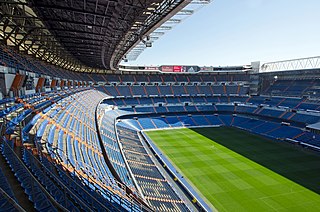
The 1968–69 season of the European Cup football club tournament was won by AC Milan, who beat Ajax 4–1 in the final, giving Milan its first European Cup title since 1963, and its second overall. A number of Eastern Bloc clubs withdrew from the first two rounds when UEFA paired up all of the Eastern Bloc clubs against one another in the aftermath of the Soviet invasion of Czechoslovakia.

The 1969–70 European Cup was the 15th season of the European Cup, a club football tournament organised by UEFA for the domestic league champions of its member associations. It was won by Feyenoord of the Netherlands, who beat Scottish club Celtic after extra time in the final at San Siro in Milan on 6 May 1970. It was the first time the title had been won by a club from the Netherlands, and sparked a period of Dutch dominance in the competition, as Ajax won the next three titles.

The 1970–71 European Cup was the 16th season of the European Cup, UEFA's premier club football tournament. The competition was won by Ajax, who beat Panathinaikos in the final at Wembley Stadium in London, on 2 June 1971. It was the first time the trophy went to Ajax, beginning a three-year period of domination, and the second consecutive championship for the Netherlands. It was also the first time that a Greek team reached the final.

The 1971–72 European Cup was the 17th season of the European Cup, UEFA's premier club football tournament. The competition was won by Ajax, who beat Inter Milan in the final at De Kuip in Rotterdam, on 31 May 1972. It was the second consecutive win for Ajax, as well as third for Netherlands. It was also the first European Cup final where both finalists had previously won and lost competition finals.
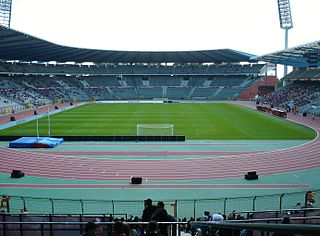
The 1973–74 season of the European Cup football club tournament was won for the first time by Bayern Munich, beginning their own three-year period of domination, in a replayed final against Atlético Madrid, the only such occasion in the tournament's final. This was the first time the cup went to Germany, and the only European Cup final to require a replay after the first match was drawn 1–1 after extra time.

The 1974–75 season was the 20th season of the European Cup, an annual football tournament for the champion clubs of the member nations of UEFA. It was won for the second consecutive time by Bayern Munich in the final against Leeds United, the first English side to reach the final since Manchester United won it seven years earlier and only the second in the history of the competition.
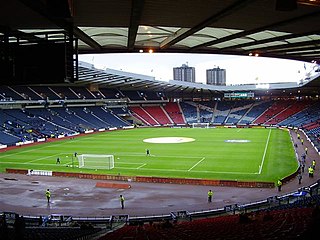
The 1975–76 season of the European Cup football club tournament was won for the third consecutive time by Bayern Munich in the final against Saint-Étienne at Hampden Park, Glasgow. This was the first time that Bayern Munich participated as last year's Cup winners only.

The 1976–77 season of the European Cup football club tournament was won for the first time by Liverpool in the final against Borussia Mönchengladbach. Three-time defending champions Bayern Munich were knocked out by Dynamo Kyiv in the quarter-finals. It was only the second time an English side won the tournament, but it started a run of six consecutive wins by English clubs and an eight-year run during which the trophy was won by English clubs on seven occasions. Including this one, Liverpool reached five finals in nine years, of which they won four.

The 1977–78 season of the European Cup football club tournament was won by defending champions Liverpool in the final against Club Brugge. The match finished 1–0, starting a run of six consecutive finals that finished 1–0 after 90 minutes, five of them won by English clubs.
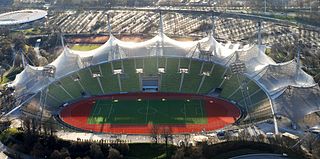
The 1978–79 season of the European Cup football club tournament was won by English champions Nottingham Forest in the final against Swedish side Malmö FF. Forest, enjoying a great run of success under Brian Clough, had defeated defending two-time champions Liverpool in the first round.

The 1979–80 season of the European Cup football club tournament was won by holders Nottingham Forest in the final against Hamburg. The winning goal was scored by John Robertson, who drilled the ball into the corner of the Hamburg net from outside the penalty area. Nottingham Forest remain the only side to have won the European Cup more times than their domestic top flight.

The 1981–82 season of the European Cup football club tournament was won for the only time by Aston Villa in the final against Bayern Munich. It was the sixth consecutive year that an English club won the competition. Liverpool, the defending champions, were eliminated by CSKA Sofia in the quarter-finals.
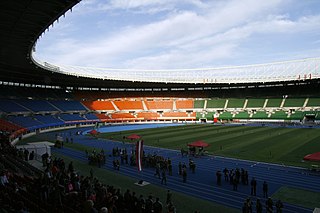
The 1986–87 season was the 32nd season of the European Cup, Europe's premier club football competition. The tournament was won by Porto, who came from behind in the final against Bayern Munich to give a Portuguese club its first title since 1962.
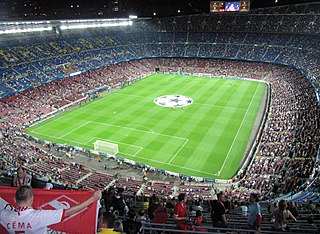
The 1988–89 European Cup was the 34th season of the European Cup football club tournament. The competition was won by Milan, the first time since 1969 and third time overall, comfortably defeated former winners Steaua București in the final.

The 1989–90 European Cup was the 35th edition of Europe's premier club football tournament, the European Cup. The final was played at the Praterstadion in Vienna on 23 May 1990. The final was contested by Italian defending champions Milan and Portuguese twice former winners Benfica. Milan successfully defended their title with a 1–0 victory, securing their fourth European Cup trophy. Milan remained the last team to successfully defend their trophy until Real Madrid did it again in 2017. Arsenal were denied a place in the competition, as this was the last year of a ban from European competitions for English clubs following the Heysel Stadium disaster of 1985.
The 1978–79 season of the European Cup Winners' Cup was won by FC Barcelona in the final in Basel against Fortuna Düsseldorf. It was the first of four occasions that the Spanish club won the tournament.
The 1978–79 UEFA Cup was the eighth season of the UEFA Cup, the third-tier club football competition organised by UEFA. The final was played over two legs at the Red Star Stadium, Belgrade, Yugoslavia, and at the Rheinstadion, Düsseldorf, West Germany. It was won by Borussia Mönchengladbach of West Germany, who defeated Red Star Belgrade of Yugoslavia by an aggregate result of 2–1 to claim their second UEFA Cup title.
The UEFA Euro 2004 qualifying play-offs were the last round of qualifying competition for UEFA Euro 2004. They were contested by the ten runners-up from the first-round groups of the UEFA Euro 2004 qualifying tournament. The winners of each of the five home and away ties joined the group winners in the European Championship in Portugal. The matches were played on 15 and 19 November 2003.
The 2020–21 UEFA Nations League B was the second division of the 2020–21 edition of the UEFA Nations League, the second season of the international football competition involving the men's national teams of the 55 member associations of UEFA.
Group D of UEFA Euro 2024 qualifying was one of the ten groups to decide which teams would qualify for the UEFA Euro 2024 final tournament in Germany. Group D consisted of five teams: Armenia, Croatia, Latvia, Turkey and Wales. The teams played against each other home-and-away in a round-robin format.